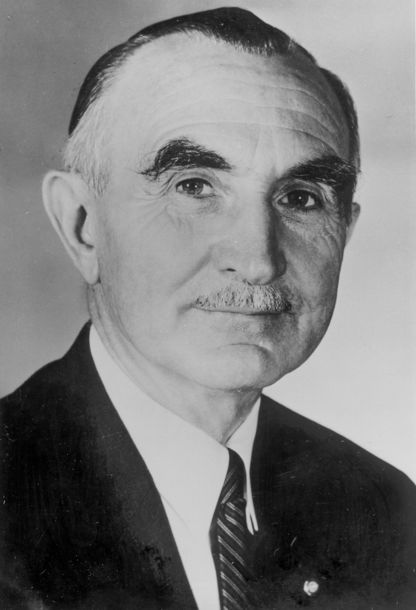Wayne Morse
| Wayne Morse | |
|---|---|
 |
|
|
United States Senator from Oregon |
|
|
In office January 3, 1945 – January 3, 1969 |
|
| Preceded by | Rufus C. Holman |
| Succeeded by | Bob Packwood |
| Personal details | |
| Born |
Wayne Lyman Morse October 20, 1900 Madison, Wisconsin |
| Died | July 22, 1974 (aged 73) Portland, Oregon |
| Resting place | Rest-Haven Memorial Park Eugene, Oregon |
| Nationality | United States |
| Political party |
Republican (1944–1952) Independent (1952–1955) Democratic (1955–1974) |
| Spouse(s) | Mildred Martha "Midge" Downie Morse (1901–1994) (m. 1924–1974, his death) |
| Children | 3 daughters |
| Parents | Wilbur F Morse (1859–1936) Jessie Elnora White Morse (1872–1938) |
| Alma mater |
University of Wisconsin (B.A. 1923, M.A. 1924) University of Minnesota (LL.B. 1928) Columbia University (LL.M., S.J.D. 1932) |
| Profession | Attorney |
| Religion | Congregationalist |
| Military service | |
| Allegiance |
|
| Service/branch |
|
| Years of service | 1923–1929 |
| Rank |
|
| Unit | Field artillery |
Wayne Lyman Morse (October 20, 1900 – July 22, 1974) was an American politician and attorney of Oregon, known for his proclivity for opposing his parties' leadership, and specifically for his opposition to the Vietnam War on constitutional grounds.
Born in Madison, Wisconsin, and educated at the University of Wisconsin and the University of Minnesota Law School, Morse moved to Oregon in 1930 and began teaching at the University of Oregon School of Law. During World War II, he was elected to the U.S. Senate as a Republican; he became an Independent after Dwight D. Eisenhower's election to the presidency in 1952. While an independent, he set a record for performing the second longest one-person filibuster in the history of the Senate. Morse joined the Democratic Party in 1955, and was reelected twice while a member of that party.
Morse made a brief run for the Democratic Party's presidential nomination in 1960. In 1964, only Morse and Ernest Gruening (D-AK) in the U.S. Senate, opposed the controversial Gulf of Tonkin Resolution. It authorized the president to take military action in Vietnam without a declaration of war. He continued to speak out against the war in the ensuing years, and lost his 1968 bid for reelection to Bob Packwood, who criticized his strong opposition to the war. Morse made two more bids for reelection to the Senate before his death in 1974.
...
Wikipedia
